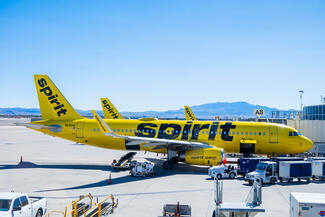Spirit Airlines, a prominent name in budget air travel, has filed for Chapter 11 bankruptcy protection, citing a series of financial setbacks, a failed merger attempt, and intensified competition. The filing, made early Monday, comes with a prearranged agreement with bondholders, including $300 million in debtor-in-possession financing, to support the airline through its restructuring. The company aims to exit bankruptcy by the first quarter of next year.
Despite the bankruptcy filing, Spirit assured customers that its operations will continue uninterrupted. CEO Ted Christie emphasized the airline's commitment to its passengers, stating, “The most important thing to know is that you can continue to book and fly now and in the future.”
Financial and Operational Struggles
The Dania Beach, Florida-based carrier has faced a series of challenges, including rising costs post-pandemic, an engine recall that grounded numerous aircraft, and the collapse of its planned acquisition by JetBlue Airways. The proposed merger was blocked by a federal judge earlier this year on antitrust grounds.
Spirit’s financial struggles were further exacerbated by a delayed renegotiation of $1.1 billion in loyalty bonds, a critical factor in maintaining transaction processing capabilities. In Monday's filing with the U.S. Bankruptcy Court for the Southern District of New York, Spirit reported assets and liabilities ranging between $1 billion and $10 billion.
To facilitate its restructuring, the airline reached a deal with bondholders to secure $350 million in equity. In addition, noteholders will convert $795 million into equity as part of the agreement. Spirit’s stock will be delisted from the New York Stock Exchange as a result.
Industry Impact and Next Steps
Spirit is the first major U.S. airline to file for bankruptcy since American Airlines did so 13 years ago. This development highlights the ongoing volatility in the airline industry as carriers grapple with evolving consumer demands and operational costs.
The airline’s struggles were underscored last week when it delayed its quarterly financial filing, reporting a decline in sales by $61 million and a steep drop in operating margins. Spirit noted that its third-quarter margins were 12 percentage points lower than its already negative margin from the previous year.
As Spirit works through its restructuring, it reassured vendors and aircraft lessors that they would not face impairments. The company expressed optimism about emerging from bankruptcy as a stronger competitor in the crowded low-cost airline market.


